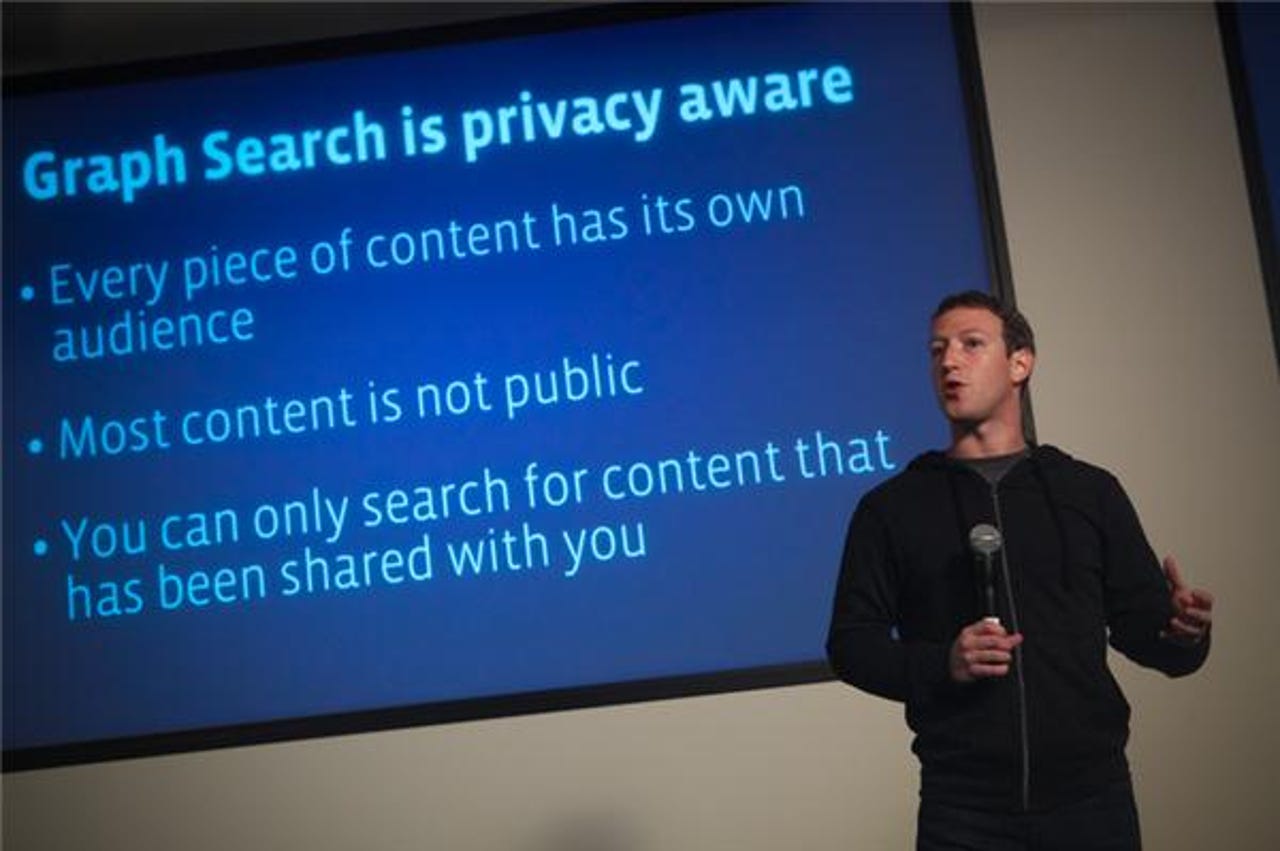Facebook unveils next step for sharing user content: Graph Search


Following in the footsteps of the News Feed and Timeline, Facebook unveiled the third "pillar" of how it plans to enable new connections: Graph Search.
See also: CNET live blog from Facebook HQ in Menlo Park, Calif.
The world's largest social network sent out invitations to media and analysts last week, prompting immediate speculation about the mystery announcement. Rumors ranged from the old (a Facebook phone) to newer ideas around a search-related venture.
Introduced by CEO Mark Zuckerberg on Tuesday morning, Graph Search is intended to be a "privacy-aware" search engine for only content that has been shared with you.
Zuckerberg tried to differentiate how this is unique compared to traditional search methods, describing that every piece of content has its "own audience" being that most of this content isn't public.
While it is a new stab at search, Graph Search has shades of other existing products, reflecting how search has evolved. For instance, Graph Search provides answers -- not just links -- much like Google Now and Apple's Siri search platforms on mobile devices.
Additionally, this also looks reminiscent of elements of Google+ with sharing via Circles. (Yet in a way, that can already be done on Facebook through Groups and the Limited Profile feature.)
Getting more precise, and even "intuitive" answers rather than just links based on keywords is not a simple process, Zuckerberg acknowledged.
Thus, Facebook is using what might be considered a less glamorous, but potentially more sturdy infrastructure to achieve this: filters.
It sounds almost too simple for a social network that handles more than one billion active users, but Facebook engineers explained that Graph Search is "structured," requiring search phrases more like sentences than simple keywords.
From there, Graph Search also lets the user narrow down results based on attributes of his or her friends, such as hometown, college/university, and personal interests.
But, according to Facebook, the point behind Graph Search isn't simply to find answers and information about current contacts.
Rather, the idea is to encourage and enable users to make "new connections" -- thus further spreading the amount of content shared across the social network available to more users.
Beyond just making new friends and contacts, Facebook is also paving the way (albeit slowly) towards being a stronger and more well-rounded search rival to the likes of Yelp (and even Google). Zuckerberg demonstrated Graph Search's potential for finding for restaurants, bars, doctors, and more based on people and items liked by your contacts.
But even though Facebook executives are advertising this as a huge development, don't expect too much at once.
Facebook added on its website that the roll out will be "slow" so engineers can fine tune and make improvements. Furthermore, Graph Search will not be available for Open Graph partners just yet either.
Graph Search is rolling out in beta mode (in English only) starting today. Interested Facebook users can also sign up to be placed on a waiting list now too.